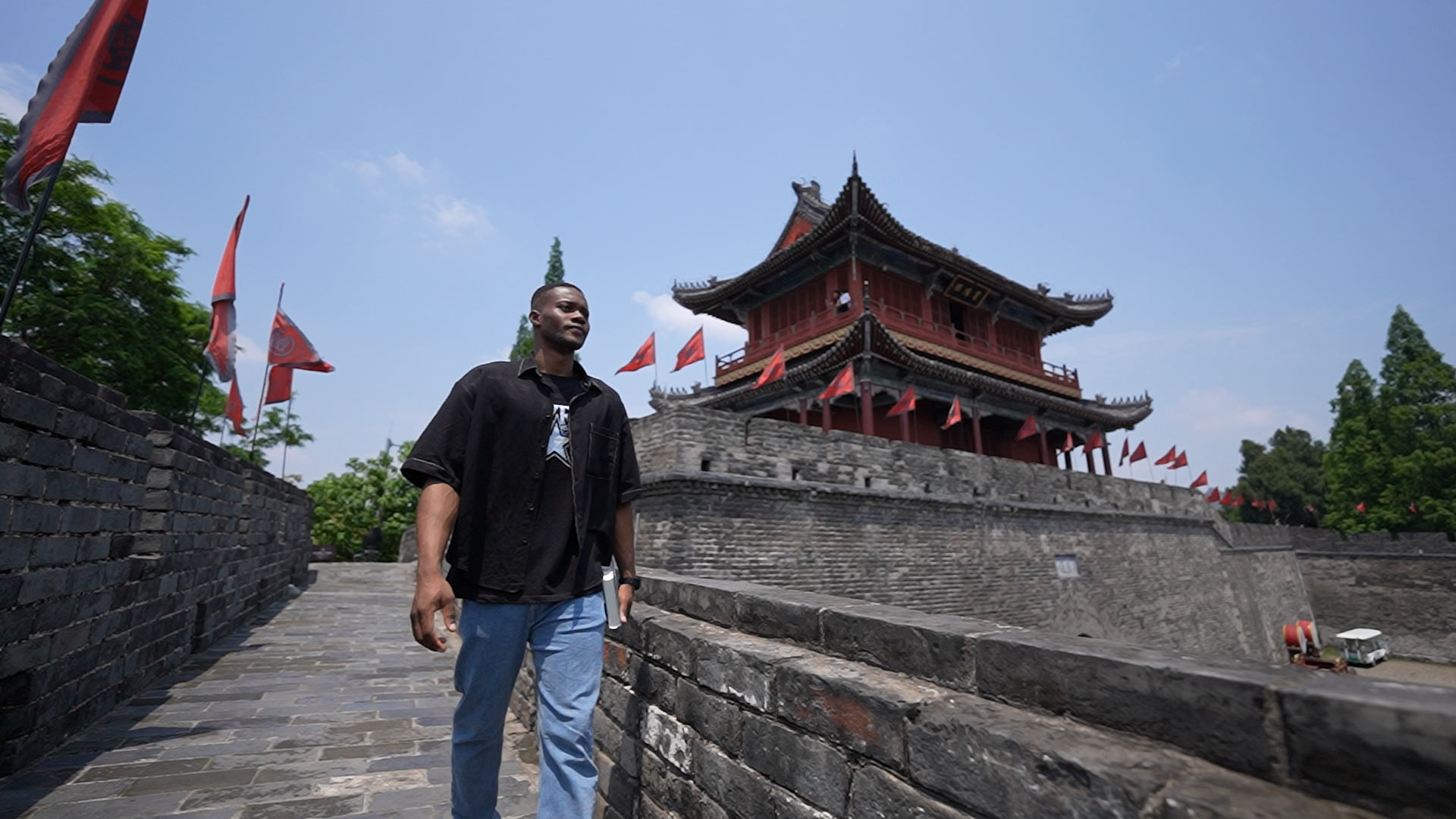On June 2, a new media program named "Discovering China - Jingzhou" under the brand of "Chinese Language Stars," jointly organized by the Center for Language education and Cooperation of the Ministry of Education and China Media Group Mobile, was officially launched. Jingzhou, a city where the ancient Chu (a Zhou dynasty vassal state) culture was rooted in, is famous for its unique culture - Jing-Chu culture, which is an import part of the Chinese culture and plays a significant role in Chinese history. Three guests were invited to visit Jingzhou, Hubei Province for an exploration of its historical sites and the dockside life, and to witness the evolvement of Jing-Chu culture that had amazed ancient literati.
09:52

The ancient city wall, a historical symbol of Jingzhou
Jingzhou is a city which reminds you The Romance of Three Kingdoms, a 14th-century historical novel. Michael Harford (Han Maoyu) from Nigeria was fascinated by the stories in the novel. After talking with local people on the history of Jingzhou, he got to know that Jingzhou had been the capital city of six dynasties in Chinese history. As a then glorious capital city, its history and culture are the gift from the ancestors. With relentless efforts of generations of Chinese people, the ancient city wall has been well protected and maintained. For Han Maoyu, the city wall is not only a symbol of history, but also an inheritance of the historical achievements. With the integration of modern elements, such as lights and scientific elements, to the city wall by modern Jingzhou people, this ancient earthwork is given a modern touch.

A still shows Michael Harford (Han Maoyu) walking on the ancient city wall of Jingzhou, Hubei Province. /CMG
A still shows Michael Harford (Han Maoyu) walking on the ancient city wall of Jingzhou, Hubei Province. /CMG
The beauty of Jingzhou in poems and baijiu
The Chinese nation has been a romantic country with its poems and baijiu (a traditional Chinese spirit) since ancient times. In Chinese literature history, poems have always been connected with baijiu. Nik Gu from Russia visited Baiyunbian (a baijiu producer in Hubei Province, with the name taken from one of Li Bai's poems, "Stopping the boat, we have a drink at Baiyunbian"), where he learnt the traditional liquor production with qu, a type of fermentation starter, and the brewing and distilling process, witnessing the innovation and expansion of this traditional industry. The Chinese baijiu culture is unique in that it is favored by both the literati and the common people, and is a drink that can not only bring fun and pleasure, but also help with the artistic creation of poets, which deeply impressed Nik.

A still shows Nik Gu visiting a liquor factory in Jingzhou, Hubei Province. /CMG
A still shows Nik Gu visiting a liquor factory in Jingzhou, Hubei Province. /CMG
Shashi Cultural & Creative Park, where you can feel the vitality of the city
Shashi, a district under Jingzhou, is known for its dock industry due to its convenient water and land transportation. However, with the economic and scientific & technological development, the district is shifting from the traditional industrial era to the post-industrial era. Melissa from Russia visited Shashi, where she learned more about it. Taking advantage of the dock history and culture here, Shashi has carried out protective renovation and functional rebuilding of a number of its famous historical buildings, which were transformed into a Cultural & Creative Park featuring the integration of cultural exhibitions, creative workshops, and riverside sightseeing along the Yangtze River. The night fair and the beautiful scenery of the Yangtze River attract many young people here. Melissa said that Shashi is rejuvenated with a modern dockside culture.

A still shows Baidak Meilissa (left) visiting the Shashi district in Jingzhou, Hubei Province. /CMG
A still shows Baidak Meilissa (left) visiting the Shashi district in Jingzhou, Hubei Province. /CMG
Making full use of cultural stories from its history and culture, Jingzhou is speeding up its creative transformation and innovative development of Jing-Chu culture, aiming to better promote the inheritance and development of the culture.